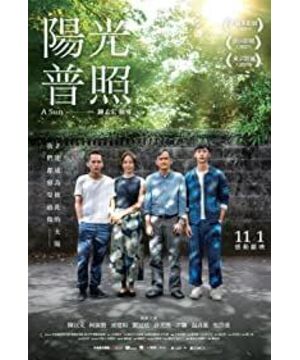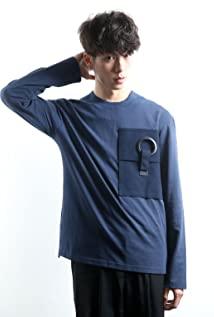Author: csh
This article first appeared in "Top Film"
At last year's special Golden Horse Awards, "The Sunshine", directed, written and photographed by Zhong Menghong, became the biggest winner.
The jury's awards "shine" every corner. It not only won the highest honor, but also won the awards for best director, best actor, best supporting actor, and best editing. Among the works it beat in the best picture category also included Chen Zheyi's well-received "Tropical Rain", which was one of my favorite Chinese-language films of last year.
"The Sunshine" tells the story of an ordinary and extraordinary family of four. A stern father, Awen, and a mother, Sister Qin, who always seemed shy, raised two sons whose life paths seemed diametrically opposed. The youngest son, Ahe, and his friend Caitou chopped others, so he was imprisoned in a juvenile nursery school; Unexpectedly, both of them slipped into a bizarre tragedy.
Chen Zheyi's torrential rain is wrapped in deep warmth, while Zhong Menghong's sunshine reflects a desolate background - of course, it is not only the complex contrast between sunny and rainy that is interesting. From these two films, we can see two different sides of Taiwanese films.
The Singaporean director's "Tropical Rain" may be "more like" the best Taiwanese films in our minds than "The Sunshine". Chen Zheyi has expressed his love for Yang Dechang, Hou Hsiao-hsien and Ang Lee on many occasions. In this work, the multiple frames, the silent emotions, the mise-en-scene in the medium and long-range shots, and the technique of turning the political situation into a scene are all Reminds us irresistibly of new Taiwanese movies.
Zhong Menghong is quite critical of the new film movement. He once said in an interview with The Reporter that he was not influenced by the aesthetics of Taiwan's new cinema, saying the only effect the movement had on him was to make him "unemployed."
Although the amazing masterpieces of Hou Hsiao-hsien and Yang Dechang have already passed through the film festival system and created the signature of Taiwanese films, Zhong Menghong seems to be still not satisfied - "Is it possible that 40 years later, the audience will know as soon as they see it that this is a Taiwanese film. "His subtext may be that the new film movement is long gone, or that it's still not enough.
From the fierceness and hybridity of this film, we can see that he really wants to seek a breakthrough and create a "new new film" other than a new film.
In fact, in the first scene, this determination is already on full display. We saw that Caitou and Ah He walked into a restaurant from the rain, passed through the deep space of the kitchen, and came to the table and cut off Hei Lun's hand. Hei Lun lay on the ground and struggled in pain, a large amount of blood spattered from the cross section of his broken arm. The amputated hand fell into the hot vegetable soup-later we learned that even if his hand fell into the cesspool, there was a possibility of continuity, but after it fell into the vegetable soup and soaked, there was no hope at all.
It's almost impossible to see such a scene in the work of the New Film Movement. Although some would say that films such as Hou Hsiao-hsien's "Daughter of the Nile" and Yang Dechang's "Guling Street Juvenile Murder" also explored the issue of urban juvenile delinquents. However, they will take a longer view, and even let the brutal events happen off-screen.
In "City of Sadness", Tony Leung played Lin Wenqing, a deaf and mute man who was locked in a cell with many others in the second half of the film. In a very famous scene, many people were pushed outside the cell and shot, while Lin Wenqing stared out the window, of course he didn't know what was going on because he couldn't hear the gunshots. Commenting on the scene, David Bordwell said that this is how ordinary people experience history.
In Zhong Menghong's films, his protagonists are at the heart of events. We see some highly typed elements, including gangsters, extortion, revenge and shocking violence.
But Sunshine is also different from those Hong Kong gangster films that created a unique genre. It does not cover up violence, nor does it glorify violence. It gives us a visual representation of the atrocity itself at the outset, but it doesn't suspend it. It spends the entire film to explore the impact of such atrocities on families and society. This sequelae-style plot is also the reality of "The Sunshine". Hei Lun's severed arm not only showed shocking blood, but also exposed Ah He's family problems and juvenile delinquent problems in Taiwanese society.
Ye Rufen, the producer of "The Sunshine" pointed out, "He (Zhong Menghong) is one of the few Taiwanese directors who can make genre films with an artistic form, and he is very gentle and delicate, so he can produce works like "The Sunshine"." Therefore, Although we will see genre films, strong dramatic conflict and elements of violence, but we also see the ins and outs of this violence.
Even the seemingly omnipotent Caitou in the film has his own way of doing things. He, who cut people off for Ah He without saying a word, would of course be angry because Ah He never asked him, because he probably really cared about Ah He—his last cigarette was lit outside the car, because Ah He had told him not to light cigarettes in the car.
Wang Xiaowen of "Reporter" wrote, "Zhong Menghong's 2013 Lost Soul...is a decisive anomaly, forcibly pulling a blurred area between normality and madness", which is also what "The Sunshine" is doing . It allows us to see the madness of the genre, and it also allows us to see a unique reality that is different from the new film.
What is even more dazzling is that Zhong Menghong uses a set of equally mixed audio-visual techniques to present this mixed type and theme. Unlike many new film masterpieces that focus on mid-range and long-range composition, for him editing and camera movement may be as important as mise-en-scene.
His relatively free style may be related to the work experience of advertising directors, MV directors and even photographers. The new Taiwanese film may not really make him "unemployed", but only forced him to take the road of commercial shooting when facing the declining Taiwanese film market. He even filmed a very creepy MV for Chen Qizhen's "Lying in Your Closet", which was nominated for the Best Video Award at the 14th Golden Melody Awards.
In addition, he is also a director, screenwriter, photographer trinity creator. Interestingly, there was a friend who told him not to do everything by himself and find a separate photographer to share the work. But his desire to control did not allow him to do so, so he came up with a Japanese stage name "Nakajima Nagao", which takes the homonym of "Zhong Dao" and combines it with "Changxiong" with Taiwanese local flavor. Make him "photographer".
These work experiences may have influenced his "live school" demeanor. Zhong Menghong firmly believes, "To make a movie is to go to the scene, don't spend too much thinking... As long as the color of the light is right, the atmosphere will jump out as soon as the actor steps in. I won't grind the actor, I think an actor is right or wrong. It's not whether he will act, but whether the director has caught what you want."
Obviously, Zhong Menghong, who believes that he is not influenced by the new film aesthetics, does not want to create some kind of pure image style that precedes the theme, and does not want to pursue the master authorship of Hou Hsiao-hsien or Yang Dechang. He's just using all the audiovisual skills he has to try to tell his story. So we can see close-up dialogue in the new style of coherence, but also emotional movement shots combined with mid-range and long-range scheduling, especially the slow-moving push shots.
Years later, when Ah He met Hei Lun again, we first saw a double medium shot, in which Hei Lun recounted his experience after his hand was cut off. At this time, we were able to observe Ah He's uneasy reaction. However, as the camera slowly gets closer, we gradually see only the black wheel alone. We can't see Ah He's expression until the camera moves to the left.
We can think of this scene as a microcosm of the hybridity of "The Sunshine" -- there are shocking atrocities, and there are subtleties and shadows after the atrocities.
"The Sunshine" certainly isn't sophisticated. Its narrative is still procrastinated and messy, and there are omissions, and the handling of the ending is debatable. However, its tentacles reaching out to more dimensions may have the opportunity to activate some new possibilities for Taiwanese films.
View more about A Sun reviews











